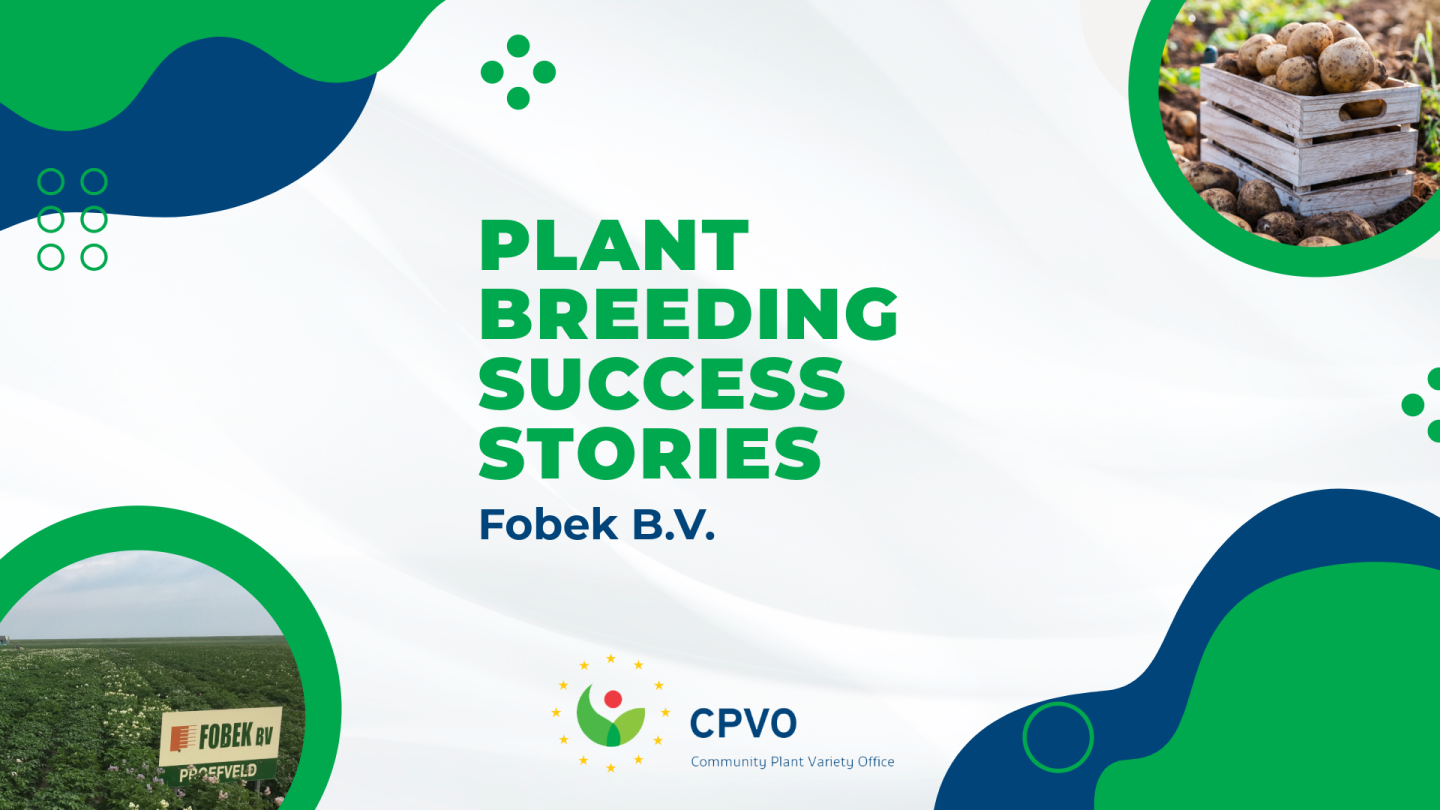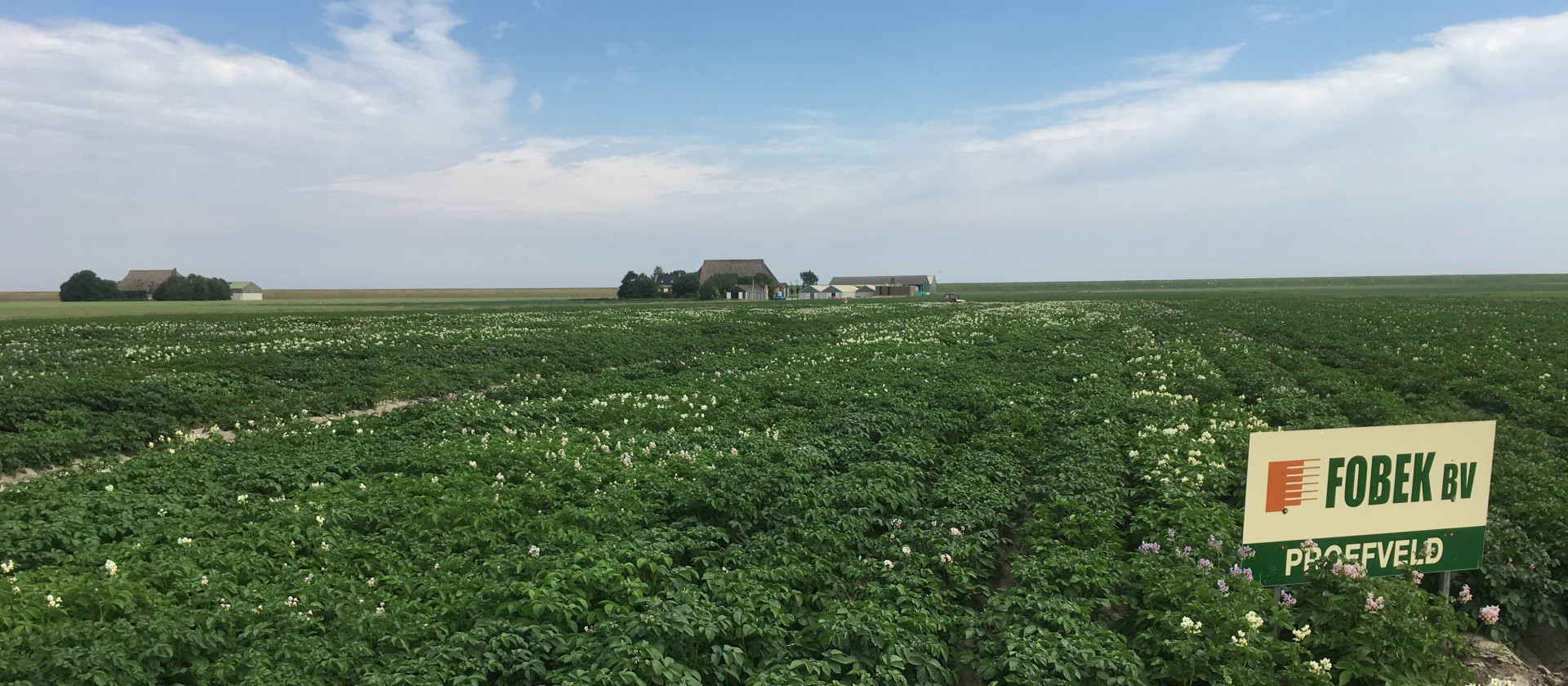
Welcome back to another article in our ‘Plant Breeding Success Stories’ series. This series of articles highlights a selection of plant breeders and companies across the EU, giving us a deeper insight into how the plant varieties of the future are developed.
In this article we’re talking to Jacques from Fobek, a breeding company specializing in potatoes who’s process involves working with associated “backyard” breeders.

Could you briefly describe the work of Fobek?
Fobek is a potato breeding company that runs separate breeding programs for its different clients. These breeding programs are targeted to the specific demands of the client. We are located in the North of the Netherlands, on the border of the Waddenzee where we work under rather dry and salty conditions, but with a lower presence of aphids. For the first three years of developing a new potato variety, Fobek works in cooperation with a group of associated backyard breeders. After 3 years the best seedlings are tested for 2-3 years more on the different trial fields of Fobek. Then the client takes over and starts with introduction trials, commercial multiplication and finally decides if a variety has potential enough to applicate for breeders’ rights and national listing.
In what ways is your organization taking proactive measures to adapt your different programs to the environmental challenges brought about by climate change?
The potato itself already has a broad adaptability to climatic conditions. On the other hand, potato cultivation is a high input crop and therefore it is important to use varieties that deliver a high potential with a low risk. Characteristics that are important in our breeding program are resistances and tolerances to different diseases and tolerances to wet, dry and salty conditions. Besides the most important characteristics like yield and quality, Fobek selects based on foliage type, root development and earliness in tuberization and foliage maturity.
Could you provide insights into your experience with the plant variety protection (PVP) system? What were the key factors that influenced your decision to opt for this system?
The potato is a vegetative multiplicated crop and under the right conditions relatively easy to reproduce. To be able to regain the costs of developing a new variety, it is necessary to have some sort of protection. The introductions of the EU rights via the CPVO was a welcome renewal in comparison to the old system, when varieties had to be registered separately in each country across Europe.
Looking ahead, what challenges and opportunities do you anticipate for Plant Variety Rights (PVR) within your sector?
In the normal potato breeding, there are not many changes expected and required. But in potato seed breeding there is still some discussion expected on the grade of uniformity for hybrids and the characteristics on which this has to be determined. With farms getting bigger and seed potatoes more expensive, an increase in the area FSS (Farm Saved Seed) can be expected.
Can you discuss the advantages that Fobek and associated hobby breeders gain from the legal certainty offered by the CPVO system?
Companies are breeding new varieties of plants for two reasons. First, it shows that the company is thinking about the future and this makes it a more reliable commercial partner. Secondly and more importantly, it is to have their own protected varieties that they can market without competition. This can help establish a stable market position and augments the chance of return on investment.
How do you envision the future of plant breeding (for both hobbyists and professionals) in relation to technological advancements and regulatory changes?
What is happening now in Europe with the partly admitted new techniques, the new EU legislation, Green Deal (or not), etc. makes it very difficult to predict the future of agriculture and breeding in it. The decisions we take today will shape the varieties we breed over the next 15 years and nobody knows what farming in Europe will look like in 5 years from now. The potato seed breeding (diploid) and the Crisper-Cas9 techniques can speed up breeding and help companies to adapt quicker to changing legislation. But this will probably be limited to larger, financially strong companies. The smaller companies will have to adapt to the challenges and take their chances and will also in the future find their place.
Did you know that there is a mechanism, the SME Fund 2024, that grants 1500€ per SME like yourself, for online application and examination fees? Do you think this support can be helpful?
Yes, this mechanism is known and communicated to our clients. This SME Fund can be helpful for small breeders that have not found a commercial company for their variety yet.
The Fobek B.V. website can be accessed here.
